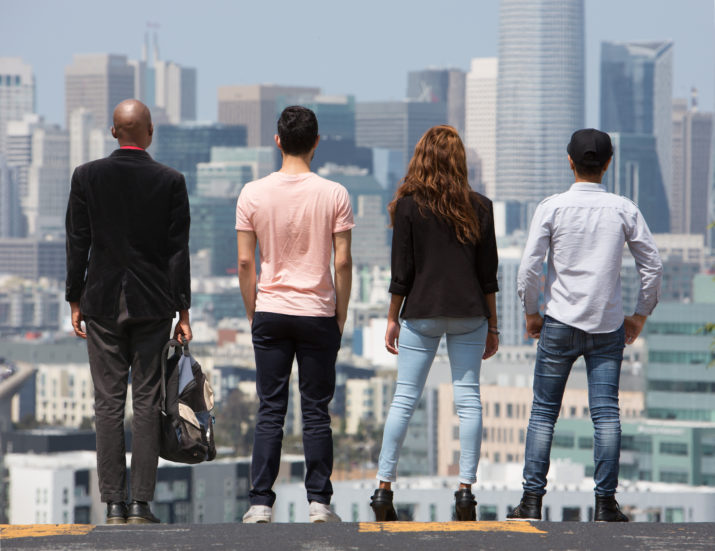directed by Tom Shepard, USA 2019, 82’
UNSETTLED is a feature-length documentary revealing the untold stories of LGBTQ refugees and asylum seekers who have fled intense persecution from their home countries and who are resettling in the U.S. The film follows four new arrivals, each of whom have escaped potential peril in their native countries for being different. They’ve landed in the purported “gay mecca” of San Francisco, yet even there, building a new life in an adopted nation is a precarious undertaking. As new leadership in America continues to restrict immigrants and drastically cut the flow of refugees and asylum seekers, UNSETTLED sheds light on a group about which few people know. What are the costs persecuted immigrants pay for seeking refuge? And how are everyday Americans stepping forward to help those most in need?
Watch the trailer
Documentary available online fAvailable from November 3 at 9pm to November 5 at midnight at festivalscope.com/
Available for free for up to 400 people
Live on Facebook: Thursday 5th November – 5.30 pm
with Dany Carnassale (Cà Foscari University of Venice) and Jonathan Mastellari (Chairman of IAM)
“Another look. Forced migration and LGBTQI identity.”
The topic of migration for reasons related to sexual orientation and/or gender identity is still poorly known. When approaching this topic, it is commonly given importance to the different geo-political situations of countries that have laws that support LGBTQI communities and those that condemn these communities, leading to forced migrations and different forms of social stigmatization (Carnassale 2020). Even if there is no official data about this yet, this phenomenon is becoming increasingly visible and significant, questioning scientific research, but also policies and actions of support currently existing.
In scientific literature, the gender-sensitive approach to the migration studies (Mahler, Pessar 2003) has only recently begun to focus on the experiences and peculiarities of the LGBTQI forms of mobility (Carnassale 2013).
As regards third sector associations and companies, in the past years many awareness-raising initiatives have taken place, which have led to a greater consciousness about the needs, expectations and desires of LGBTQI migrants, particularly of those who deal with asylum procedures and make requests for international protection.
The topic discussed during the seminar shows the challenges to the theories and the policies – which often imagine the forms of mobility as heteronormative – and on the other side, those that the people working in the reception procedures and on the third sector must face, which remind the importance of cooperation between home and host countries, and furthermore the importance of education on the legal and social-sanitary side for those who work in contact with migrants.
On both sides, a great potential comes from the ethnography of migrations (Capello, Cingolani, Vietti 2014) and of institutions (Sòrgoni 2011), but also from the research paths which explore and question the governance policies in relation to gender and sexuality (Pinelli 2019; Ciabarri 2020).




